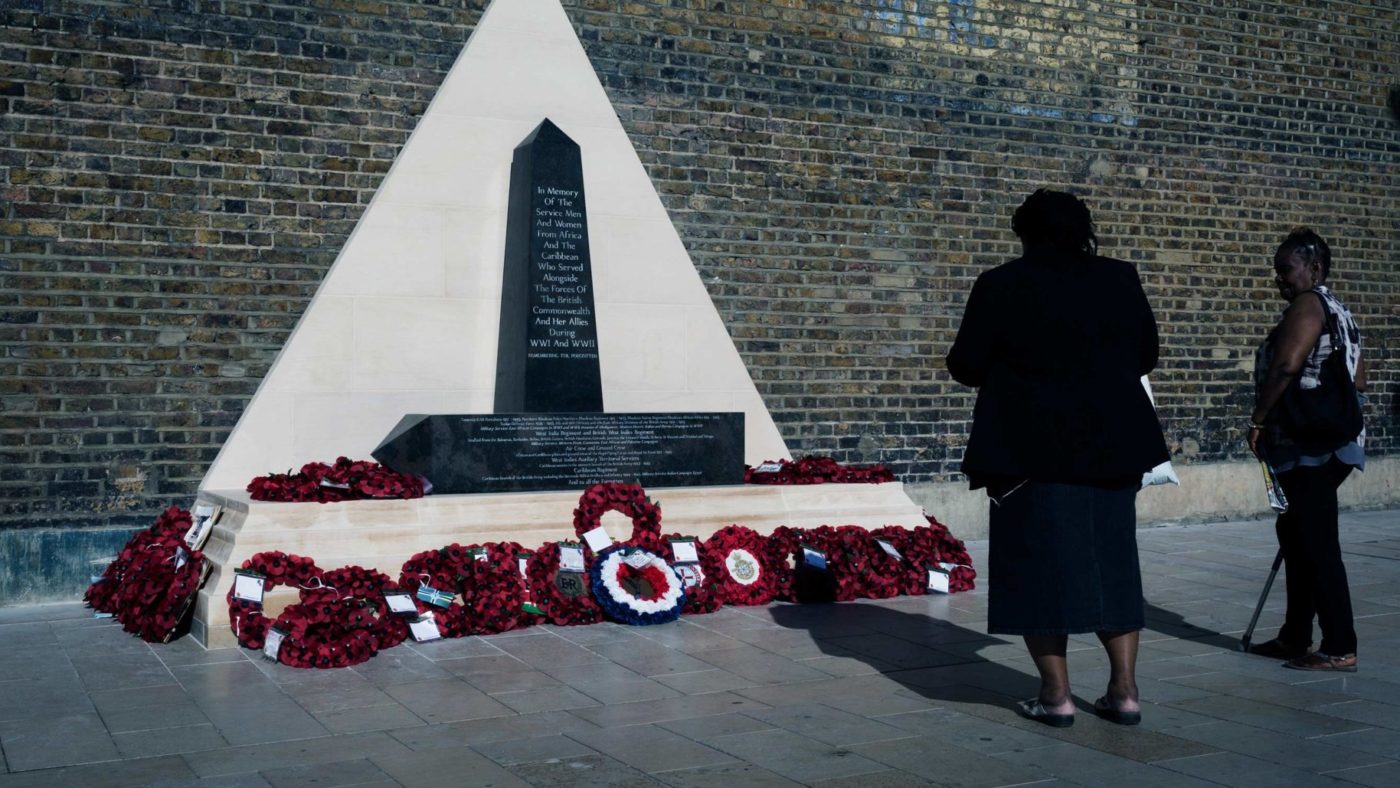As Remembrance Sunday draws near, politicians from all parties today joined veterans, civil society and faith leaders and former generals to urge greater efforts to commemorate servicemen and women from across the Commonwealth who served in the Second World War. Making Remembrance more relevant and inclusive to people of all ethnic backgrounds, this ‘Remember Together’ initiative argues, would help make this a moment when we come together to commemorate a history that we all share.
The argument that history can unite as well as divide may seem counter-intuitive in a year which debates about history and statues have often been said to be the new front in the a ‘culture war’ over identity and race.
A major report published earlier this week from More in Common found that fighting that war remains very much a minority sport in Britain, despite the impression given by a social media culture which amplifies the loudest, most polarised views to the point where they can dominate media and political discourse. Yet the More in Common report also set out why different intuitions about history can lead to contrasting perceptions over, for example, statues or the National Trust’s efforts to research and report on Empire and colonialism.
Interrogating our history does matter. As the historian David Olusoga argued at a British Library event recently, it would be wrong to think of history as a feel-good “soft play area”, requiring the removal of all of the “sharp edges” that explain the making of modern Britain. We may build more confidence to have those difficult conversations if we realise how an engagement with this history can build a shared understanding of identity in modern Britain too.
Looking at the armies that fought and won the Second World War, they are rather more like the Britain of 2020 than that of the 1940s in their ethnic and faith mix. It can surprise people to realise that, and yet it could be one of the most important foundations of the British identity that we share today. For we can never fully understand the making of today’s Britain – our modern, multi-ethnic, post-imperial society – without a deeper understanding of the full, undoubtedly complex history of the Empire and Commonwealth that has made us who we are today.
The Second World War to defeat Hitler’s genocidal Nazi regime was an existential conflict for British democracy. This was a global war too, in which over 10 million service personnel from all across the Commonwealth and Empire served in Africa, the Middle East, Asia and Europe. Soldiers, sailors and airmen from the Indian subcontinent, Australasia, Africa, and Britain fought to defeat Nazism in Africa and the Middle East. Africans, West Indians and British troops fought alongside Indians to defend India from invasion and to liberate Burma, Malaya, Singapore and Hong Kong.
Commemorating all those who served from the Empire and Commonwealth is not a substitute for engaging with the complexities and controversies of the war itself or the longer history of Empire. Rather, it can offer an entry point that helps to illuminate it.
The Indian Army in the Second World War was the largest volunteer army in history. It outnumbered – by a 50:1 ratio – the 43,000 rebels who heeded Subhas Chandra Bose’s call to secure independence by fighting alongside Japan and Germany. Yet many of those who volunteered to fight for ‘king and country’ pushed for decolonisation too. Their crucial role in defeating Japan was, for many Indian Army officers, the final proof of India’s readiness for self-government. That shared achievement was to begin to change the post-war world, with Indian independence coming just two years to the day after VJ Day brought the war to an end.
The docking of the Windrush at Tilbury in 1948 is often taken as a starting point for the post-war Commonwealth migration. Yet this was not a new beginning but rather the opening of another chapter. One third of those on board were RAF servicemen who were returning to Britain. That was why the Evening Standard front-page greeted the boat with the headline “Welcome Home”.
There has been a gradually growing awareness of the black and Asian forces who served in the World Wars, particularly during the First World War centenary. Remember Together wants this shared history to be taught in all our schools and commemorated outside of them too.
It is an approach with overwhelming public appeal, which bridges those from every mainstream political perspective – indeed, there is 78% to 3% public support for the core idea that doing more to recognise the Commonwealth contributions to the Second World War would be a positive way to promote understanding of the shared history of today’s multi-ethnic Britain. That sentiment is shared equally across ethnic minority and white British respondents.
Children in our multi-ethnic classrooms today need to learn about this long and shared history – that if your family came from the Caribbean, from Nigeria or from Pakistan, this is your history too. This can help to broaden understanding of why everybody is invited to participate in our national traditions of Remembrance, if they choose to do so, and why it is meaningful to people of every ethnic and faith background in Britain today.
Click here to subscribe to our daily briefing – the best pieces from CapX and across the web.
CapX depends on the generosity of its readers. If you value what we do, please consider making a donation.


